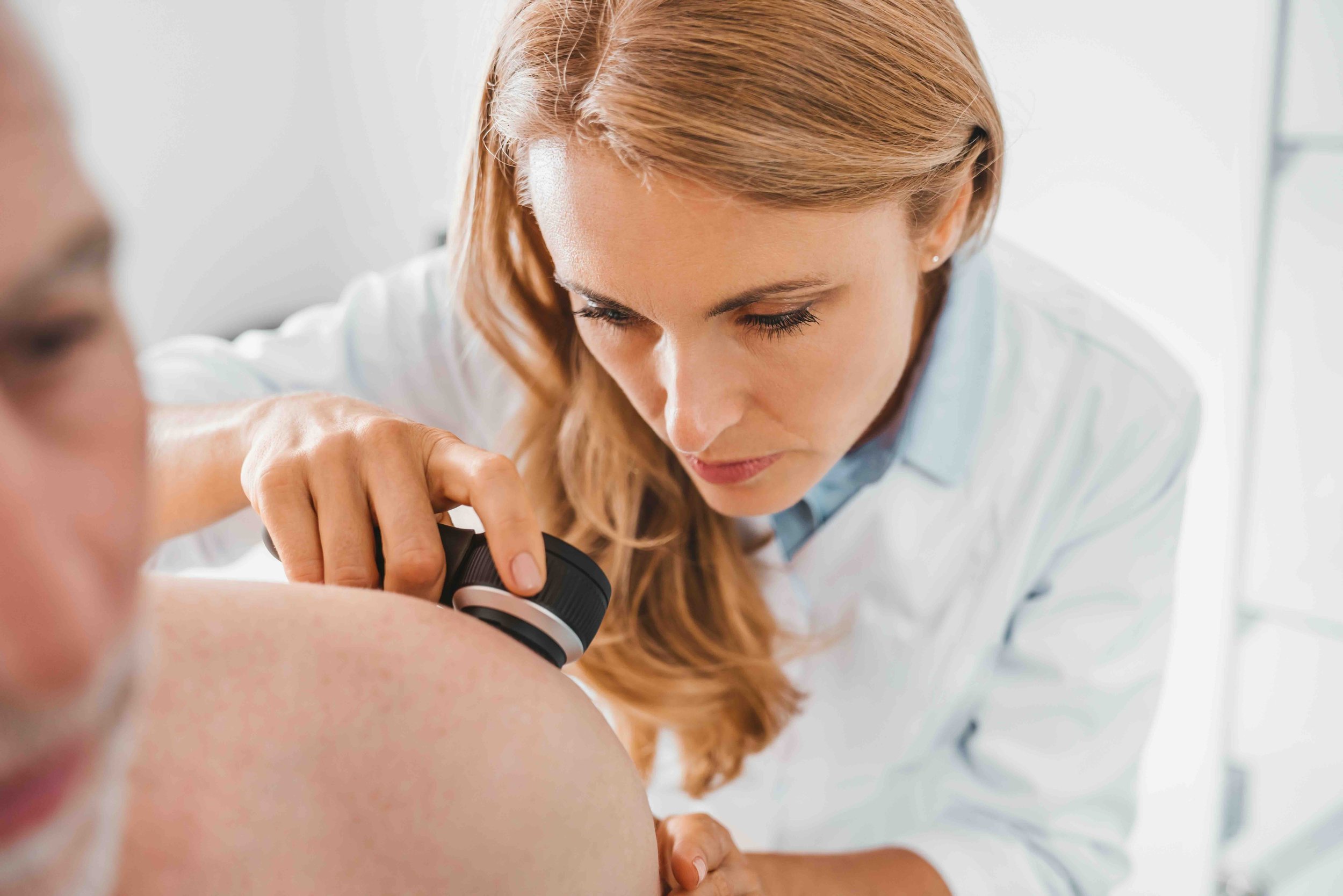
Skin Cancer experts
in san antonio
Skin Cancer: Early Detection is Key
Skin cancer is the most common form of cancer in the United States. While concerning, the good news is that skin cancer, when detected early, is often highly treatable. At LIV Dermatology, we take skin cancer prevention and treatment very seriously. Our board-certified dermatologists are experts in identifying and treating all types of skin cancer, offering comprehensive care to keep you healthy.
Types of Skin Cancer
-
Basal Cell Carcinoma (BCC)
The most common type of skin cancer, often appearing as a flesh-colored bump or a pinkish patch of skin. BCC grows slowly and rarely spreads to other parts of the body, but early detection is still essential.
-
Squamous Cell Carcinoma (SCC)
This type typically manifests as a red, scaly patch, or a sore that heals and then reopens. It can be more aggressive than BCC and may spread to other parts of the body if not treated early.
-
Melanoma
Although less common, melanoma is the most dangerous form of skin cancer. It often appears as a new mole or changes in an existing mole's size, shape, or color. Early detection is crucial for successful treatment.
What to Expect During a Skin Cancer Screening
Regular skin cancer screenings are essential for early detection. During your appointment at LIV Dermatology, our dermatologists will conduct a thorough examination of your skin, checking for any unusual moles, lesions, or growths. If anything suspicious is found, a biopsy may be performed to determine if cancer is present. Early detection greatly improves treatment outcomes, so we recommend annual skin checks for all patients.
Skin Cancer Prevention Tips: Protect Your Skin and Reduce Your Risk
Is Skin Cancer Common on Dark/ethnic Skin?
While melanoma is less common in darker skin tones, late diagnosis can be deadly. Dr. Moore, a board-certified dermatologist, explains why early skin checks are crucial for everyone. Watch to learn more!
FAQS
-
There are three main types of skin cancer:
Melanoma: The most serious form, but also the least common. It can develop anywhere on the body.
Basal cell carcinoma (BCC): The most common type, usually slow-growing and highly treatable when detected early.
Squamous cell carcinoma (SCC): Less common than BCC, but can be more aggressive.
-
Several factors can increase your risk, including:
Fair skin: People with lighter skin tones are more susceptible to UV damage.
Sun exposure: Excessive ultraviolet (UV) radiation from the sun is a major risk factor.
History of sunburn: Severe sunburns, particularly in childhood, increase your risk.
Family history: Having a close relative with skin cancer raises your risk.
Weakened immune system: Certain medical conditions or medications can weaken the immune system, making you more vulnerable.
-
Sun protection is key! Here are some tips:
Seek shade, especially during peak sun hours (10 am - 4 pm).
Wear sun-protective clothing, including hats and sunglasses.
Apply broad-spectrum sunscreen with SPF 30 or higher daily, even on cloudy days.
Reapply sunscreen every two hours, or more often if sweating or swimming.
Avoid tanning beds.
-
The recommended frequency depends on your individual risk factors. Generally, most adults should have a skin cancer screening by a dermatologist at least once a year.
Meet our Dermatologists
TESSA CERVANTES, MD
Milton Moore, MD





